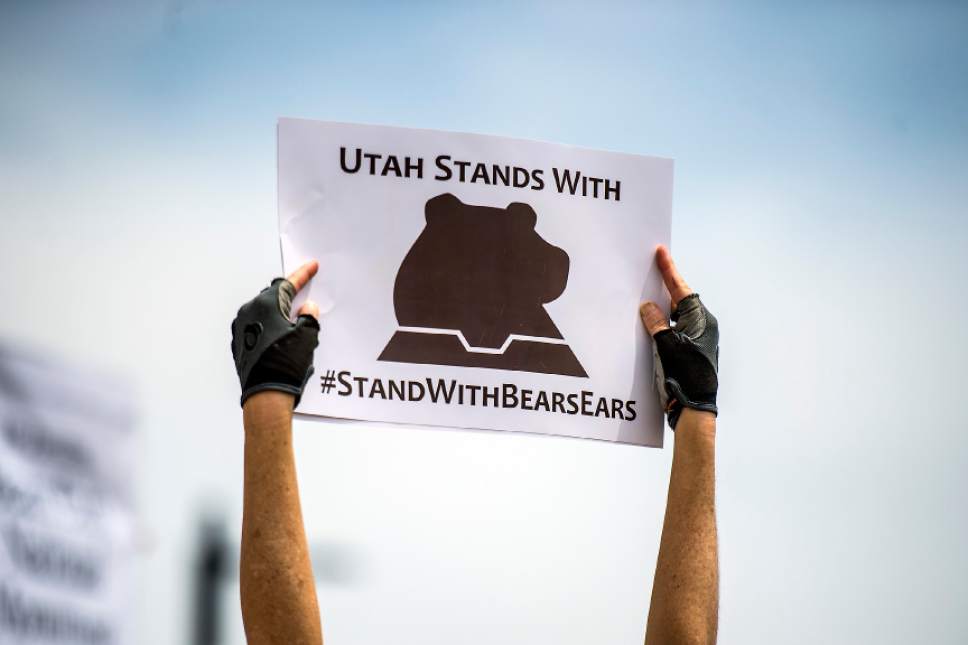This is an archived article that was published on sltrib.com in 2017, and information in the article may be outdated. It is provided only for personal research purposes and may not be reprinted.
Do the people of Utah want to rescind the Bears Ears National Monument? The answer, according to the latest poll commissioned by Utah Diné Bikéyah and conducted by Public Opinion Strategies — a highly respected research firm with strong GOP ties — to see where voters stand on the monument, is no.
In fact, 64 percent of Utah's likely voters support keeping Bears Ears as a national monument, at its current size. Only 30 percent oppose the monument. Further, by a nearly two-to-one margin, voters believe that the monument designation has been a "good thing" for Utah.
As a lifelong resident of San Juan County, I grew up in Blanding listening to the stories of my grandmother who could trace her lineage to back her grandmother's time at Bears Ears. Before the English language, paved roads, towns, churches and settler families, there was a place of great power and healing. Now, after returning home from graduate school, I too am getting to know Bears Ears as our church, and the plants, medicine, animals and spirits that live there as its congregation.
We are not the masters of this place; we are merely a part of it. It was then and is now the wish of the elders that we be caretakers of it. Fortunately, we the people of Utah, are all invited to be stewards of it, too.
Survey respondents affirmed that their beliefs don't square with the actions of the elected officials who represent them. Utahns clearly care about access to public lands, because 9 in 10 had visited national public lands in the past year, and 1 in 10 had done so more than 10 times. We also care about the cultural treasures held within Bears Ears, with 84 percent saying that better protecting Native American and historic artifacts are "very" or "extremely" important reasons to support the monument.
The results beg the question: Why does Utah's congressional delegation persist in trying to strip protections from Bears Ears? The only answer that makes sense is that this is a personal political agenda to turn back the clock on Utah's economy and its relationships with tribes. The public comment period recently closed (with 96 percent of the 685,000 comments submitted in favor of monument protection), and now Interior Secretary Ryan Zinke faces a choice: Will he try to force us to go back, or will he join us in moving forward?
Going back means allowing special interests to carve up our sacred lands for short-term gain. Going backwards means deliberately breaking another promise by the federal government to Tribes, tearing open the wounds between indigenous and non-indigenous folks in our communities after the healing has already begun.
Moving ahead means following the leadership of Tribes on Bears Ears, after years of vigorous public discussion. Moving forward means embracing possible futures of Utah's economy, investing in public lands for the gain of everyone in our state. It means strengthening new kinds of collaboration between Tribal and federal governments.
We honor our ancestors; it's why we're fighting so hard to protect Bears Ears. Today, we seek to move forward and I invite Secretary Zinke will take this step together with us.
Angelo Baca is cultural resources coordinator for Utah Diné Bikéyah.



